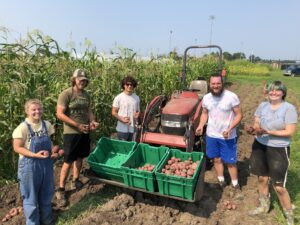




© 2024 Purdue University | An equal access/equal opportunity university | Copyright Complaints | Maintained by Purdue Student Farm
If you have trouble accessing this page because of a disability, please contact Purdue Student Farm at kkalbaug@purdue.edu | Accessibility Resources